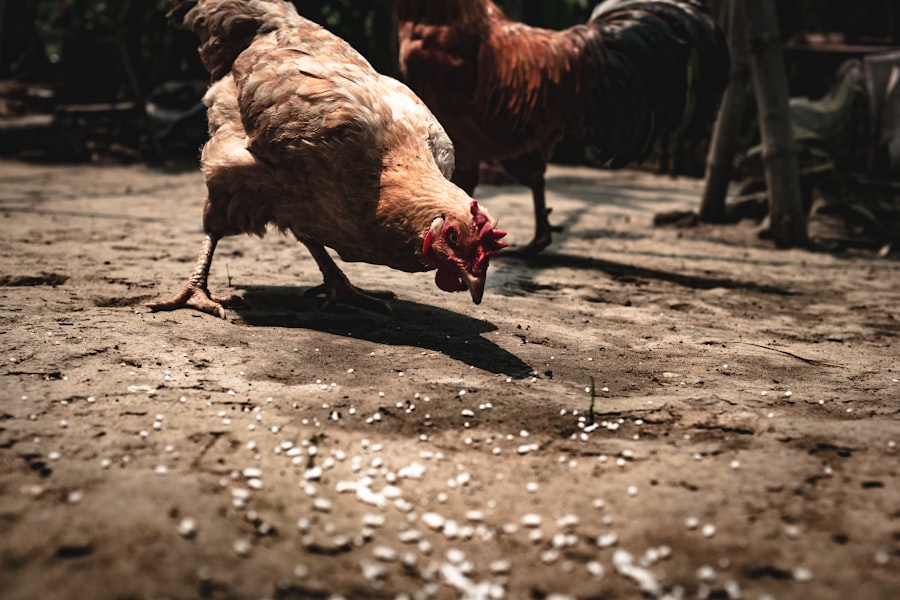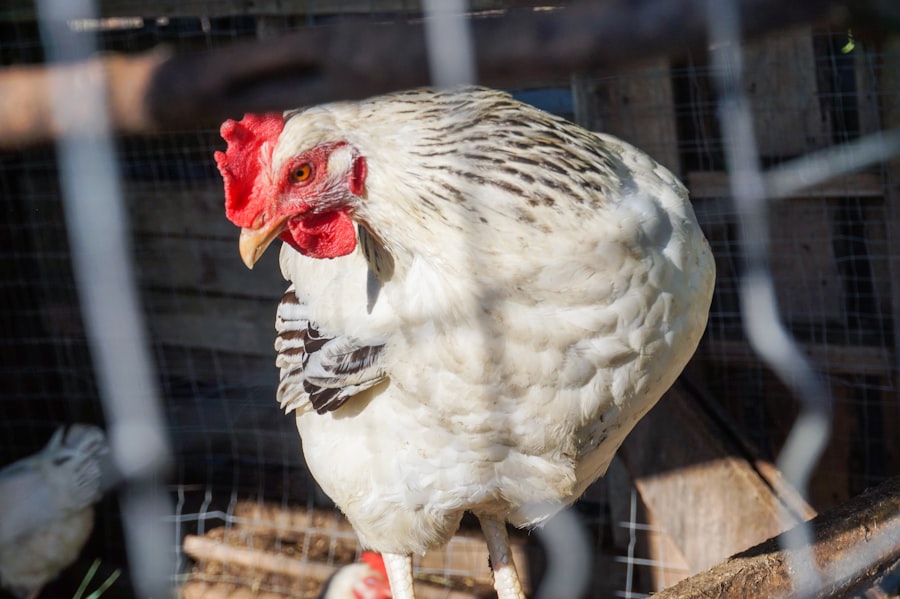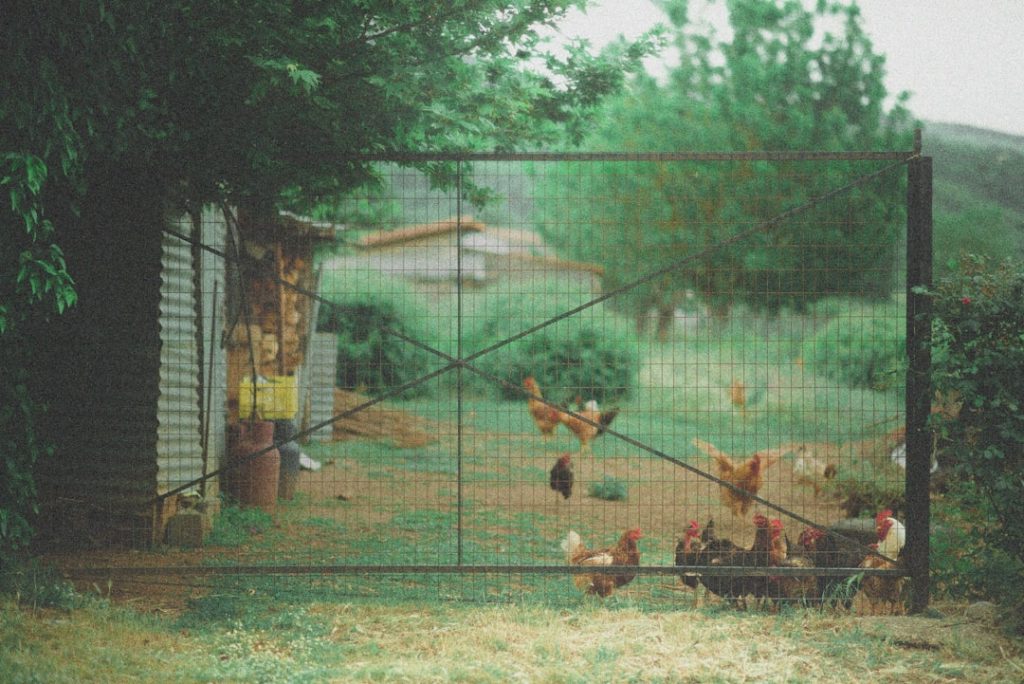Chicken keeping has gained popularity worldwide as a hobby for various reasons, including fresh egg production, meat sourcing, and companionship. Chickens are generally low-maintenance animals that can thrive in backyard or farm settings, offering a sustainable food source and entertainment. This article will examine chicken lifespans, factors influencing their longevity, and considerations for keeping chickens for egg and meat production, as well as pets.
Chickens have been domesticated for millennia, playing a significant role in human agriculture and food production. They are known for their adaptability to diverse environments and natural foraging instincts. Chicken keeping can be fulfilling for both experienced farmers and novice owners.
Understanding chicken lifespans and the factors affecting them is crucial for potential chicken keepers. Knowledge about optimal durations for egg or meat production, as well as considerations for keeping chickens as pets, can inform decision-making in chicken husbandry.
Table of Contents
Key Takeaways
- Keeping chickens can be a rewarding and sustainable practice for many people, whether for egg or meat production, or simply as pets.
- The lifespan of chickens can vary depending on factors such as breed, diet, and living conditions.
- Factors affecting chicken lifespan include genetics, environment, and healthcare, which can all impact the overall health and longevity of the birds.
- Chickens can be kept for egg production for several years, with peak production typically occurring in the first 2-3 years of their lives.
- Chickens raised for meat production are typically kept for a much shorter period, usually around 8-12 weeks before they are ready for processing.
- When considering chickens as pets, it’s important to think about their social needs, space requirements, and the commitment to care for them throughout their lifespan.
- In conclusion, keeping chickens requires careful consideration of their lifespan, purpose, and the responsibilities involved, but can be a fulfilling and enjoyable experience for many people.
The Lifespan of Chickens
Factors Affecting Lifespan
The lifespan of a chicken is also influenced by how they are raised and cared for. Chickens that are kept in clean and spacious coops, provided with a balanced diet, and given proper veterinary care are more likely to live longer and healthier lives.
Life Stages of Chickens
Chickens go through different stages in their lifespan, starting as chicks and progressing to pullets (young hens) and cockerels (young roosters), before reaching maturity as hens and roosters.
Importance of Proper Care
As they age, their egg production may decrease, and they may become more susceptible to certain health issues. Understanding the natural lifespan of chickens is important for managing their care and making decisions about their future in egg or meat production or as pets. By providing proper care and attention, you can help ensure that your chickens live a long and fulfilling life.
Factors Affecting Chicken Lifespan

Several factors can affect the lifespan of chickens, including genetics, diet, living conditions, and healthcare. Genetics play a significant role in determining how long a chicken will live, as certain breeds are naturally predisposed to longer or shorter lifespans. Additionally, the diet of chickens is crucial for their overall health and longevity.
A balanced diet that includes a mix of grains, protein, vitamins, and minerals is essential for supporting the health and vitality of chickens. The living conditions of chickens also play a critical role in their lifespan. Clean and spacious coops with proper ventilation and access to outdoor space for foraging contribute to the overall well-being of chickens.
Additionally, providing regular veterinary care, including vaccinations and parasite control, can help prevent diseases and health issues that may shorten a chicken’s lifespan. By addressing these factors and ensuring that chickens receive proper care and attention, you can help maximize their lifespan and quality of life.
How Long to Keep Chickens for Egg Production
When it comes to keeping chickens for egg production, the lifespan of hens is an important consideration. Hens typically start laying eggs at around 5-6 months of age and can continue laying for several years. However, their egg production may decline as they age, with peak production usually occurring in the first 2 years.
After this period, some chicken keepers may choose to retire older hens from egg production and allow them to live out their remaining years as pets. The decision of how long to keep chickens for egg production depends on various factors, including the breed of the hens, their individual health and productivity, and the goals of the chicken keeper. Some breeds are known for their exceptional egg-laying abilities and may continue to produce eggs at a steady rate for several years.
Others may experience a decline in egg production after the first couple of years. Ultimately, the decision of when to retire hens from egg production is a personal one that should take into account the well-being of the chickens and the preferences of the chicken keeper.
How Long to Keep Chickens for Meat Production
For those raising chickens for meat production, the lifespan of the birds is determined by when they reach market weight rather than their age. Broiler chickens, which are specifically bred for meat production, typically reach market weight at around 6-8 weeks of age. At this point, they are ready for processing and consumption.
While some chicken keepers may choose to raise chickens for meat on a larger scale for commercial purposes, others may raise a smaller number of birds for personal consumption. The decision of how long to keep chickens for meat production depends on the desired size and quality of the meat, as well as the preferences of the chicken keeper. Some may prefer to process chickens at a younger age for more tender meat, while others may allow them to grow larger before processing.
Regardless of the approach taken, it is important to ensure that chickens raised for meat production are provided with proper care and living conditions throughout their lifespan.
Considerations for Keeping Chickens as Pets

The Lifespan of Pet Chickens
Many people choose to keep chickens as pets due to their friendly nature, entertaining behavior, and ability to provide fresh eggs. However, it’s essential to consider their lifespan and long-term care needs. Chickens can live for several years, so it’s crucial to be prepared for the commitment of caring for them throughout their lives.
Providing a Safe and Enriching Environment
Providing a safe and enriching environment for pet chickens is crucial for their well-being. When keeping chickens as pets, it’s important to consider their social needs and provide opportunities for interaction and enrichment. Chickens are social animals that thrive in small flocks, so it’s ideal to keep them in groups rather than alone.
Meeting Their Natural Behavioral Needs
Additionally, providing access to outdoor space for foraging and dust bathing can help meet their natural behavioral needs. By considering these factors and providing proper care and attention, pet chickens can live happy and fulfilling lives as part of the family.
Conclusion and Final Thoughts on Keeping Chickens
Keeping chickens can be a rewarding experience that provides a sustainable source of food, companionship, and entertainment. Understanding the lifespan of chickens, the factors that influence it, and considerations for egg production, meat production, and pet keeping is essential for anyone considering raising these birds. By providing proper care and attention throughout their lives, chickens can live long and healthy lives while contributing to the well-being of their human caretakers.
Whether you are raising chickens for eggs or meat or keeping them as pets, it’s important to consider their individual needs and provide a suitable environment that supports their natural behaviors and overall well-being. By doing so, you can enjoy the many benefits that come with keeping these feathered friends while ensuring that they lead fulfilling lives in return. Ultimately, keeping chickens is not just about what they can provide for us but also about the responsibility we have in caring for them throughout their lives.
If you’re wondering how long to keep chickens, you may also be interested in learning about the best flooring options for your chicken coop. Poultry Wizard has a helpful article on the topic, which you can read here. Understanding the different flooring options can help you create a comfortable and healthy environment for your chickens.
FAQs
What is the average lifespan of a chicken?
The average lifespan of a chicken is around 5-10 years, depending on the breed and the level of care provided.
How long do chickens lay eggs for?
Chickens typically start laying eggs at around 5-6 months of age and can continue to lay eggs for 2-3 years, with peak production occurring in the first year.
How long should you keep chickens for egg production?
Chickens can be kept for egg production for 2-3 years, after which their egg production may decline. Some backyard chicken keepers may choose to keep their chickens as pets after they stop laying eggs.
How long do chickens live after they stop laying eggs?
Chickens can live for several years after they stop laying eggs, with proper care and attention. The lifespan of a chicken can vary depending on factors such as breed, health, and environment.
What factors can affect the lifespan of chickens?
Factors that can affect the lifespan of chickens include genetics, diet, living conditions, healthcare, and predator protection. Providing a clean and safe environment, proper nutrition, and regular veterinary care can contribute to a longer and healthier life for chickens.
Meet Walter, the feathered-friend fanatic of Florida! Nestled in the sunshine state, Walter struts through life with his feathered companions, clucking his way to happiness. With a coop that’s fancier than a five-star hotel, he’s the Don Juan of the chicken world. When he’s not teaching his hens to do the cha-cha, you’ll find him in a heated debate with his prized rooster, Sir Clucks-a-Lot. Walter’s poultry passion is no yolk; he’s the sunny-side-up guy you never knew you needed in your flock of friends!







